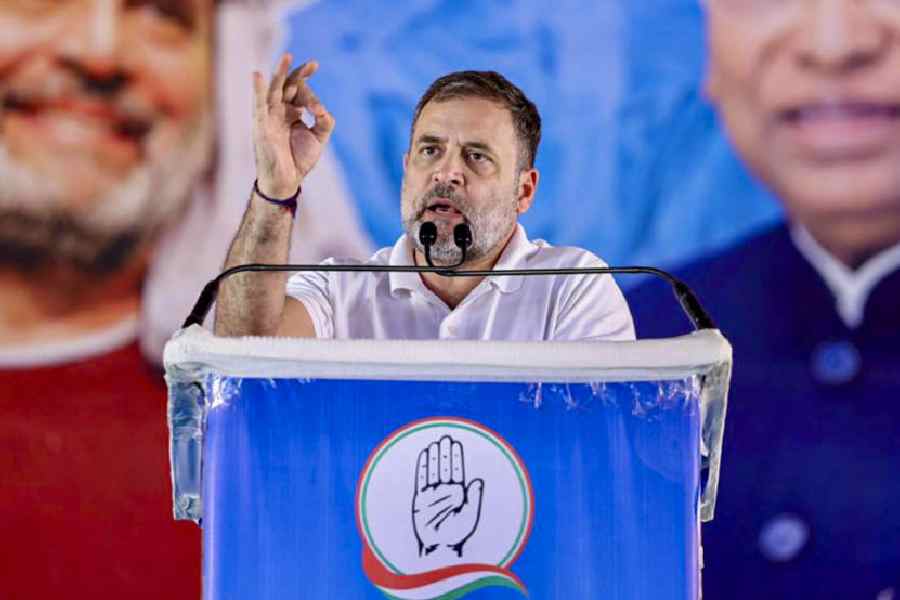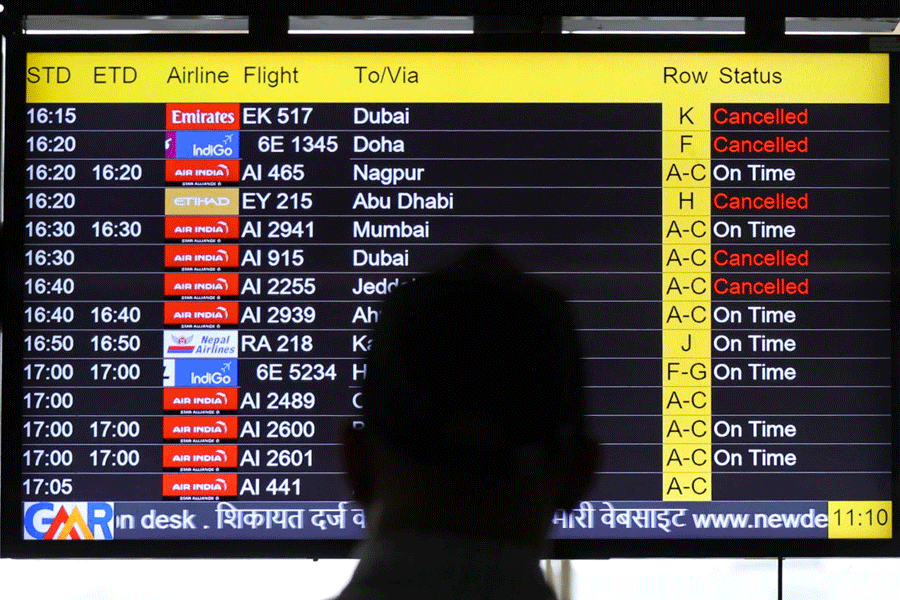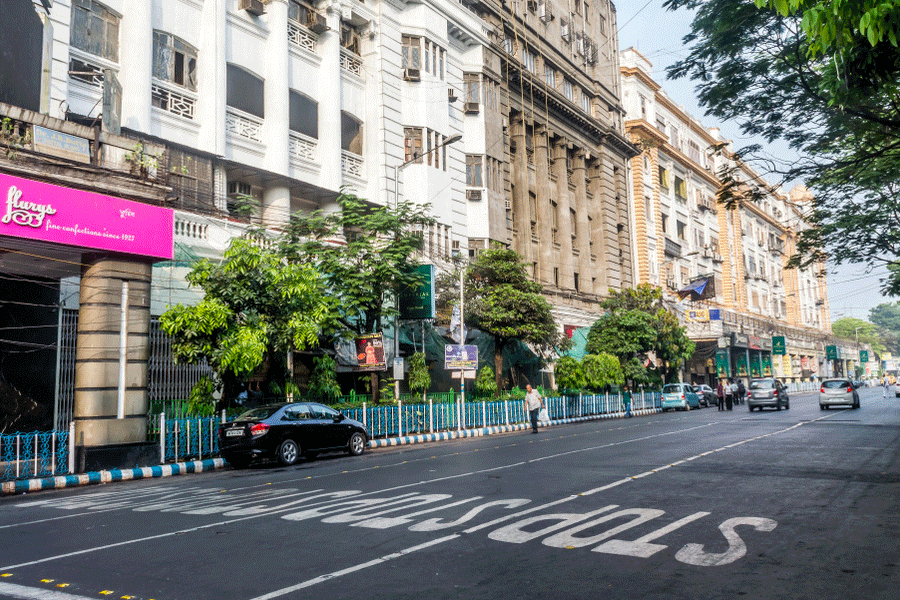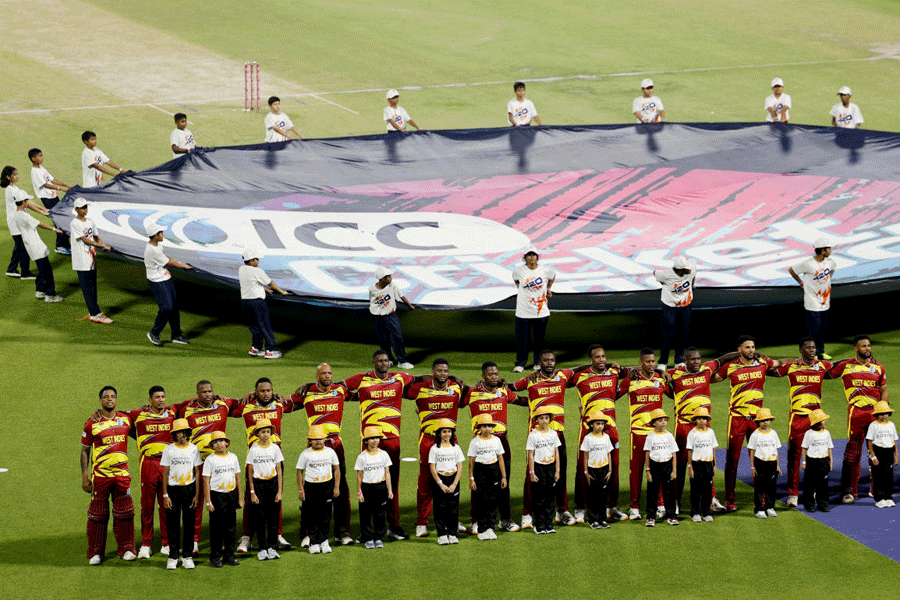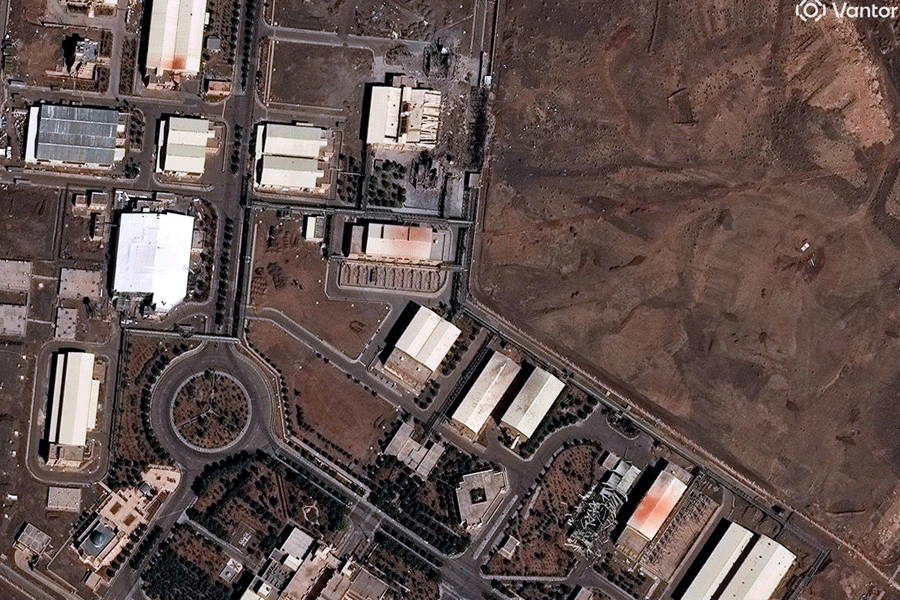 |
A smart city is made of smart people and a smarter administration.
Ranchi’s new-found aspiration to hop on to Prime Minister Narendra Modi’s 100-smart-cities bandwagon may seem nothing more than a daydream after its four-year-old city bus service was grounded on Monday. That the beleaguered fleet went off road owing to fuel crunch is a classic example of how unmindful urban planning can mock a citizen’s fundamental right to an efficient public transport system.
According to the regional director of the Institute for Transportation and Development Policy (ITDP), Shreya Gadepalli, the biggest deterrent for public transport efficiency in Jharkhand, particularly its capital city, is lack of political support.
“You hear ministers announcing flyovers and monorails in Ranchi. Have you ever heard anything about a proper bus service or a holistic public transport? Never,” she said. “Flyovers and monorails — ambitious projects that feed on subsidies — benefit only a certain section of people, not the masses who seek affordable transport. The government can rather consider giving subsidies for the city bus service,” she added.
ITDP, which works on efficient and environment-friendly transport system worldwide, did a pre-feasibility report for Ranchi two years ago on the behalf of the government. The report, submitted to the state urban development department, is gathering dust.
“We have had so many consultations with various stakeholders here. Everyone acknowledged problems flagged in our report and also our suggestions, but till date things haven’t moved. It is nothing but lack of genuine intent at the highest level,” Gadepalli said.
On Monday, city buses were grounded in both Ranchi and its ‘mission cousin’ Dhanbad. The 60-odd fleet joined another 50 city buses in Jamshedpur, where a petty dispute is holding public transport to ransom for weeks now.
A senior Ranchi Municipal Corporation (RMC) official, requesting anonymity, spilled home truths on why the civic guardian was shying away from city bus take-over from the Jharkhand Tourism Development Corporation (JTDC).
“The fleet of buses is in pathetic condition. Till the vehicles are repaired, we aren’t going to run them as our own. The three-month extension to JTDC is the time offered for the job. As far as an SPV (special purpose vehicle) is concerned, the government has to take a call,” he said.
The JTDC, on the other hand, is happy playing ‘victim’ of a forced responsibility, which the state handed over to it through a cabinet decision in 2010 until permanent arrangements. The blunder was made four years ago, setting the stage for an unfortunate city bus show.
Can Ranchi’s public transport be improved?
Citing ITDP’s feasibility study, the regional director highlighted that private cars comprise only 3 per cent of total travel pattern in Ranchi every day. Auto-rickshaws stand at 40 per cent, two-wheelers at 20 per cent, cycles at 11 per cent, rickshaws at 3 per cent and buses at one per cent. The rest 22 per cent travel on foot.
“If you see the pattern, we have never really encouraged buses here while autos remain the transport lifeline. That is where the administration has failed. If you dig up records on government spending, you’ll see that not even one per cent has been spent on buses. In contrast, the government wants to invest several crores on flyovers and monorail,” she said, adding, “We suggest a little over 1,000 mini-buses for Ranchi, which automatically will easy rush.”
But where is the space? Won’t roads choke?
“Ranchi has over 10,000 autos, the major cause of traffic snarls. We recommend 10 per cent buses, which will offer multiple benefits, by cutting down on the three-wheeler. As far as livelihood of those associated with autos is concerned, make them stakeholders in the bus service in the form of managers, drivers and conductors. For this, a sort of joint venture or an SPV will be needed. It is very doable when every major city across the globe is focussing on public transport,” Gadepalli said.
In a final takeaway, the senior ITDP official opposed privatisation of buses.
“Outsourcing in toto will backfire on public transport. Reason: the government would then end up becoming only a licensing authority while the private player will focus solely on profit. It will decide timing and routes of buses based on profit. In this race for more money, buses may become a serial killer like in Delhi. So, in a nutshell, it is very necessary for the government to acknowledge public transport as public service,” she signed off.


